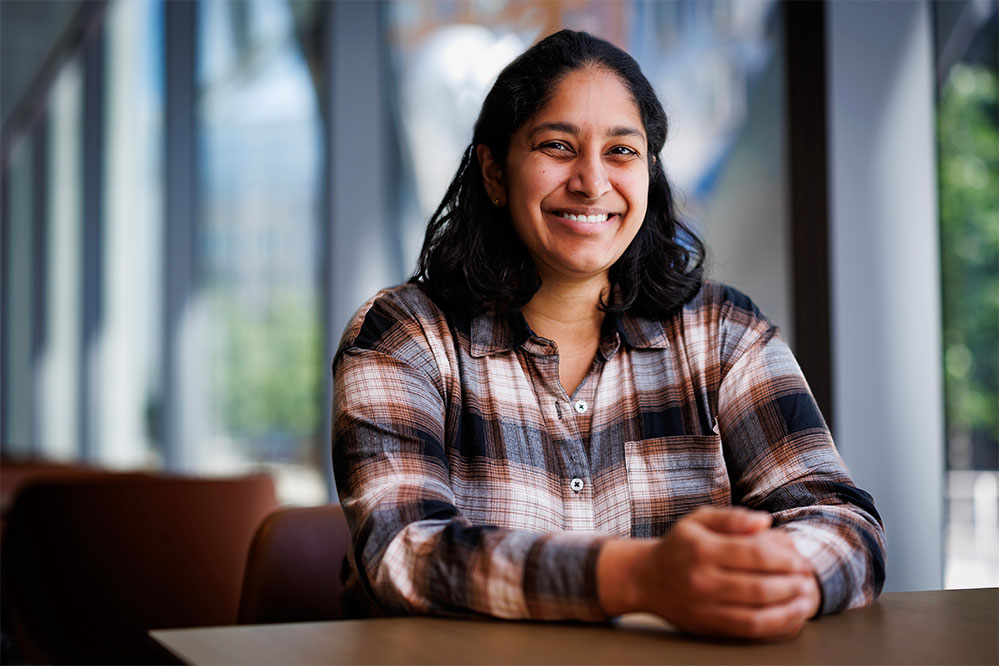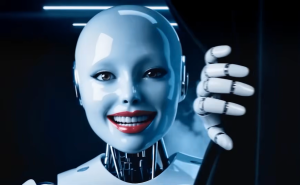Combatting environmental issues using AI technology | MIT News

Fighting for the health of the planet with AI | MIT News
Priya Donti: Bridging Technology and Social Equity
Childhood Inspirations
For Priya Donti, who currently holds the position of Silverman Family Career Development Professor in the Department of Electrical Engineering and Computer Science (EECS) at MIT, childhood journeys to India were transformative. These biennial trips were not just family visits; they ignited a deep-seated motivation to address global inequities. Growing up in Massachusetts, Donti was acutely aware of the disparities in living conditions she encountered during her travels. “It was very clear to me the extent to which inequity is a rampant issue around the world,” she reflects, emphasizing her commitment to confronting these challenges from a young age.
The Role of Education
Her passion for social equity was further fueled by a high school biology teacher who zeroed in on issues of climate change and sustainability. “We learned that climate change, this huge, important issue, would exacerbate inequity,” Donti recalls, a lesson that left a lasting impression on her. This connection between social justice and environmental issues sparked her initial academic ambitions.
Upon enrolling at Harvey Mudd College, she initially intended to explore chemistry or materials science, aspiring to create advanced solar panels. However, her trajectory shifted dramatically when she discovered her love for computer science. “It was the first time I’d seen those two interests brought together,” she notes, referencing innovative research from the UK that highlighted the crucial role of artificial intelligence (AI) and machine learning in integrating renewables into power grids.
Pursuing Higher Education
Donti further solidified her focus during her PhD studies at Carnegie Mellon University, where she crafted a unique curriculum that combined computer science with public policy. Her research centered on the need for new algorithms and tools that could manage power grids increasingly reliant on renewable energy sources. “I wanted to have a hand in developing those algorithms and toolkits by creating new machine learning techniques grounded in computer science,” she explains, all while collaborating with experts in the energy sector for practical insights.
Joining forces with like-minded individuals, Donti co-founded Climate Change AI during her PhD program. The nonprofit aimed to unite diverse stakeholders—including computer scientists, academics, practitioners, and policymakers—to pool resources and advance education in climate solutions. “In the climate space, you need experts from various sectors to create scalable impact,” she asserts, recognizing the need for interdisciplinary collaboration to tackle climate issues effectively.
Joining MIT
In September 2023, when Donti began her career at MIT, she was drawn to the institution’s initiatives aimed at applying computer science to resolve some of society’s most daunting challenges, particularly those threatening the planet’s health. “We’re really thinking about where technology has a much longer-horizon impact and how technology, society, and policy all have to work together,” she emphasizes, stressing that technological solutions must have sustainable significance beyond short-term gains.
Innovating Power Grid Technologies
At MIT, Donti’s work utilizes deep learning models to integrate the physics and constraints of electric power systems using renewable energy. This approach enables better forecasting, optimization, and control. “Machine learning is already widely used for things like solar power forecasting, which is a prerequisite for managing and balancing power grids,” she explains. Her focus is on improving algorithms that balance power grids amidst fluctuating renewable energy sources.
Among her notable achievements is a groundbreaking solution enabling grid operators to optimize costs while accurately reflecting the physical realities of the grid. Although this innovative solution has yet to be widely deployed, it promises significant improvements, working ten times faster and at a lower cost than existing technologies—an advancement that has garnered attention from grid operators.
Furthermore, Donti is developing technologies to generate synthetic data for training machine learning systems designed for power system optimization. Much of the data related to energy systems is often proprietary or restricted due to security concerns. Thus, her research group aims to create synthetic datasets and benchmarks that can help illuminate fundamental problems hindering power system efficiency. “The question is, can we bring our datasets to a point such that they are just hard enough to drive progress?” she asks, evidencing her commitment to ongoing research and development.
Recognition and Future Initiatives
For her pioneering work, Donti has received several prestigious accolades, including the U.S. Department of Energy Computational Science Graduate Fellowship and the NSF Graduate Research Fellowship. Her innovations have also led to her being named on MIT Technology Review’s 2021 list of “35 Innovators Under 35” and featured in Vox’s 2023 “Future Perfect 50.”
Looking ahead, next spring, she will co-teach a class titled “AI for Climate Action” alongside Sara Beery, an assistant professor focused on biodiversity and ecosystems, and Abigail Bodner, who specializes in the intersection of AI, climate, and Earth sciences. “We’re all super excited about it,” she says, eager to engage with students in actionable discussions around climate technology.
Commitment to Societal Impact
Coming to MIT, Donti recognized an ecosystem primarily driven by a commitment to societal impact rather than mere metrics of success like publications and citation counts. She emphasizes that the ultimate goal of her work is to effect meaningful change. Her combined passions for computer science, social equity, and sustainability exemplify a vital trend in the academic community: the pursuit of technology as a tool for lasting societal improvement.
In an era where technology and climate issues are becoming increasingly intertwined, Priya Donti stands at the forefront of innovation, continually pushing boundaries to create systems that are not only efficient but also socially responsible. Through her efforts, she is not just addressing the challenges of today but is also paving the way for a more equitable and sustainable future.
Thanks for reading. Please let us know your thoughts and ideas in the comment section down below.
Source link
#Fighting #health #planet #MIT #News





